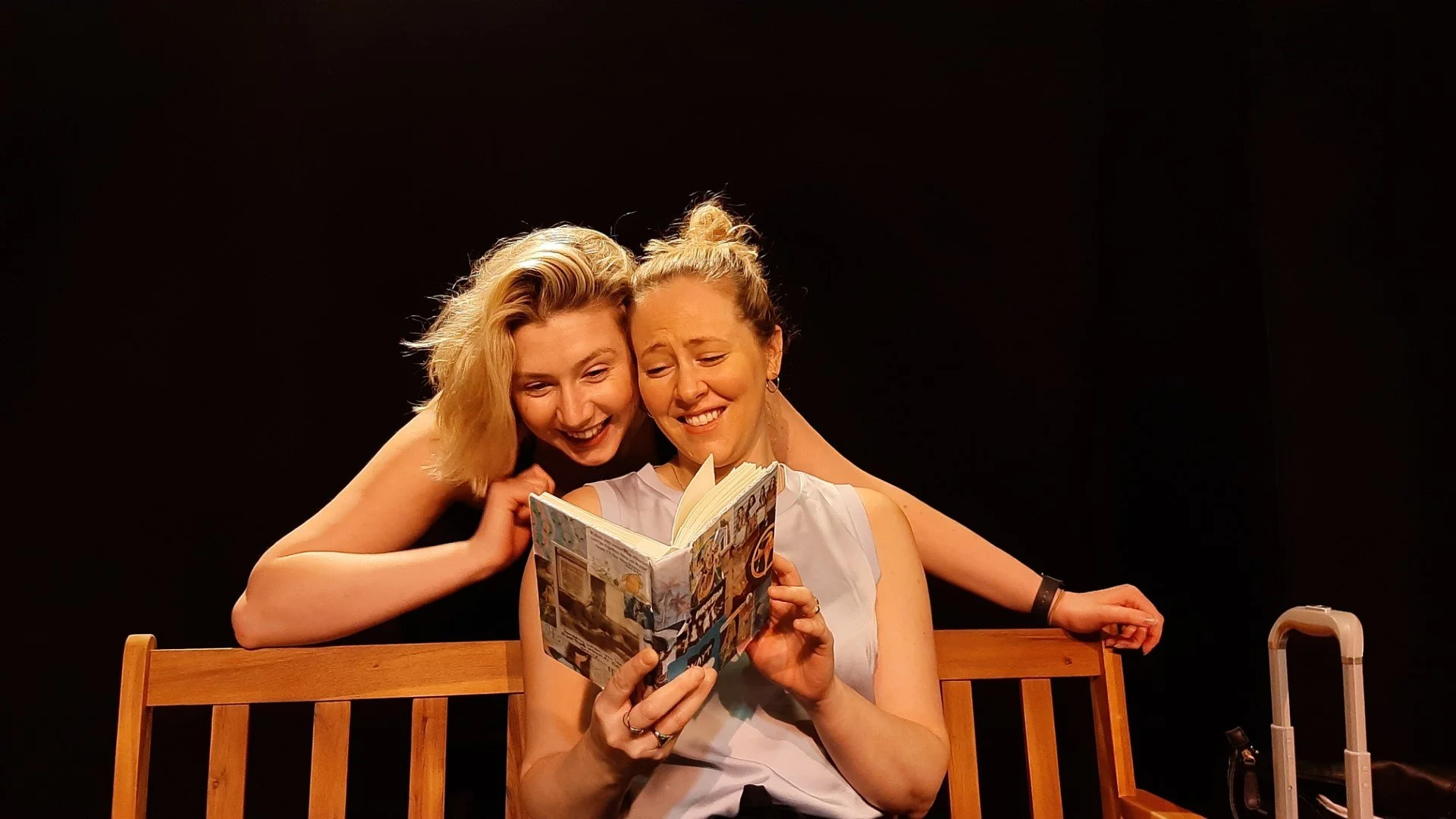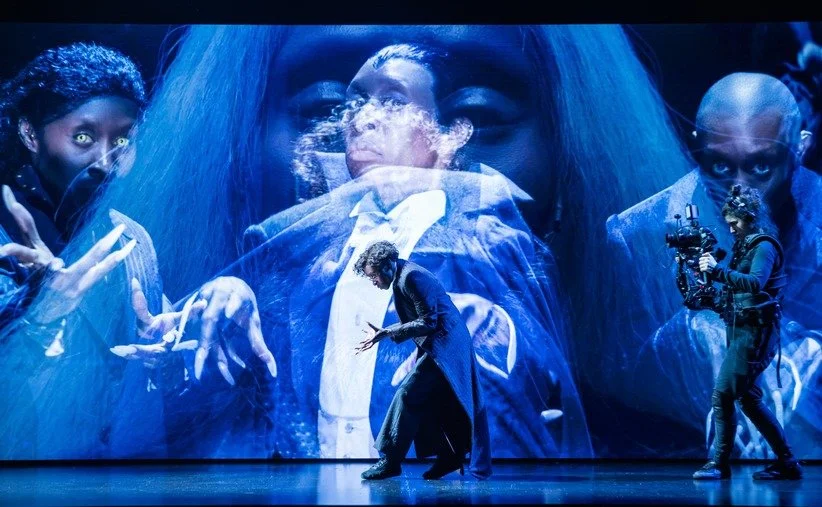Gunter, Royal Court Theatre Review
Reviewed by Charlotte for Theatre and Tonic.
*Disclaimer: Gifted tickets in return for an honest review
Historians out there, if you’re tired of friends and family suggesting your field is dull and dusty, consider taking them down to the Royal Court for a reset on that opinion.
Co-creator, performer, musician, and yes, historian, Lydia Higman speaks over the hum of an electric melody. ‘I’m a historian,’ she says, ‘not an actor playing a historian - it’s nothing as clever as that, I’m afraid.’ Maybe it isn’t as clever as that. I would suggest, actually, that it is far cleverer.
Gunter, written by Lydia Higman, Julia Grogan, and Rachel Lemon is a grungy rallying cry that pours out of a lecture screen like a biblical flood. It begins in 1604 with a football match, a murder, and a man who faces no consequences. It ends as early modern historiographies so often do. In between, Gunter’s tight ensemble of four hold the audience in a vice grip with their visceral physicality and reverberating voices. It is the story of Anne Gunter, the daughter of a man who walked free after murdering two young boys who becomes a pawn in her father’s vendetta against the boys’ grieved mother. She is bewitched, or so her father says anyway.
The story is enthralling on its own to be sure, but the ensemble’s embodiment of its echo four hundred years later is what makes the show a truly magnetic force. Outfitted in mud and blood-smeared football uniforms, Julia Grogan, Hannah Jarrett-Scott, and Norah Lopez Holden form an unshakeable triad who inhabit the ghosts of Anne Gunter’s story with a female fury that sets fire to the room. They are supported by the contextual interludes of Higman as the historian seated coolly at the back and underscoring the action with a punk-ish folk sound that burrows under your skin.
Higman, Grogan, and Lemon may borrow the aesthetics of the lecture theatre, but they certainly do not contain its action within neatly prepared slide-decks. Gunter is equal parts devised physical performance, alternative concert, and theatre of cruelty. A masterpiece of form, it steeped as much in the history of theatre as it is the history of its narrative arc. Artaudian moments of popped balloons and bloodied vomit mingle with energetic audience interactions and expressive comic monologues (such as Jarrett-Scott’s riotous take on James I). It’s messy – figuratively and literally – but witchcraft or not, there is magic in this mess.
I struggle to emphasize how masterfully Higman, Grogan, and Lemon wield a historical consciousness while also leaving the show its rightful surprises by not spoiling them here. Suffice it to say that early modern history is often unapproachable, shrouded by bygone linguistic and cultural norms. But in Gunter, the past sings with a kind of primal energy that twists together the strands of what is known and what is felt, what is written and what is understood. And after an explosive journey through Anne’s story, it is a haunting quiet that remains, pierced by a song that will not stop ringing in my head: Where the bad man sleeps. Oh lord, he’s bigger than me.
In the capable hands of Gunter’s ensemble and perched on the shoulders of every mad woman who has come after her, it is Anne who gets to be bigger.
At Royal Court Theatre until 25 April.










